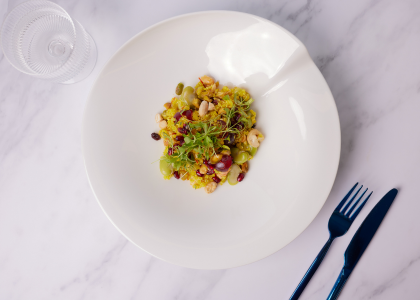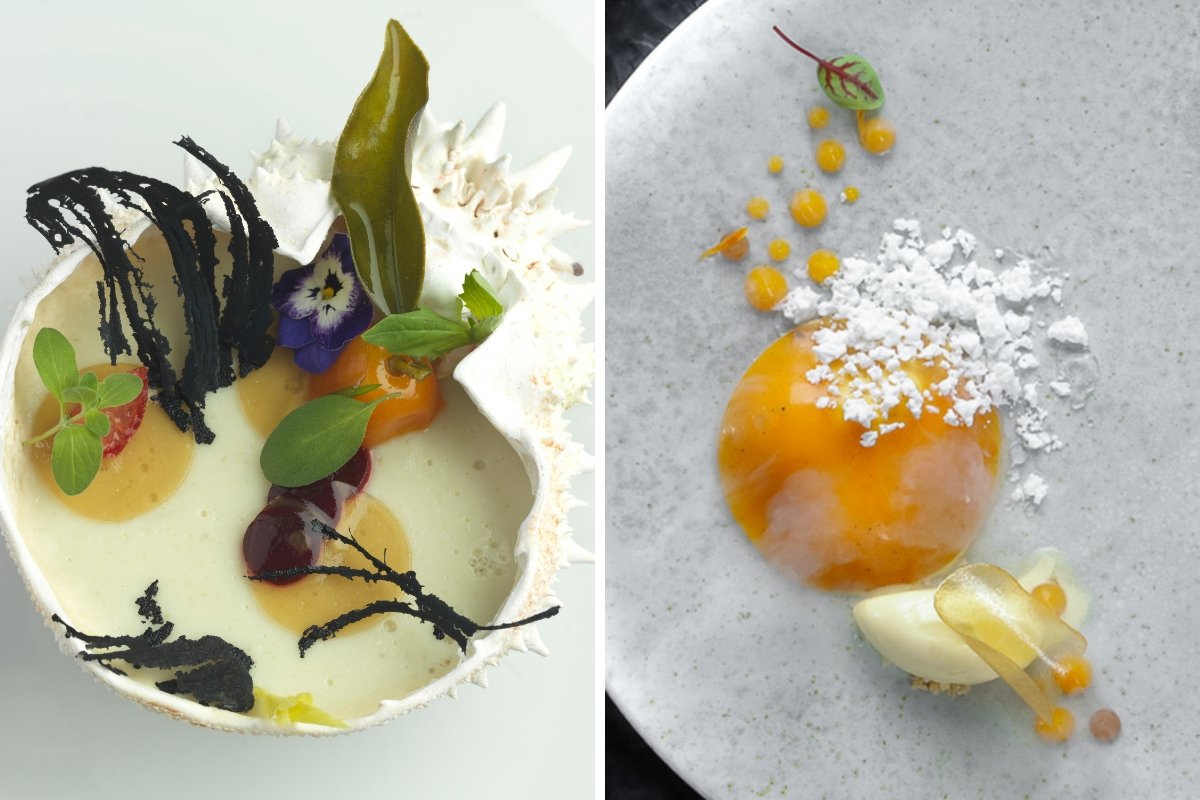
A plant-based recipe to celebrate great chefs around the world
This International Chef's Day, we're raising a fork to the hard-working and passionate chefs across the world, including Le Cordon Bleu chefs in training, ...

Without context, what does any work of art truly mean? This is the kind of question you might find yourself asking when delving into the concepts of modernist cuisine. Not a style of cooking in itself, but a forward-focused approach to dining, modernist cuisine sits at the intersection of art, science and philosophy.
There is a common misconception among many people that taste and flavour are the same thing. Taste refers strictly to what begins in the mouth - the perception of sensations between your tastebuds and brain. Meanwhile, flavour is more a complex experience, culminating from the interactions of a series of sensations: taste, touch, sound, smell, sight, emotion, memory and perhaps more.
While traditional culinary perspectives will typically observe only taste, sight and smell, and still produce high quality dishes, multi-sensory dining incorporates the idea that context can be provided to any dish by addressing the full range of sensory experience.
For one, it shapes our experience and enjoyment of the food in front of us. Think of a restaurant where the service is poor, but the food is excellent. While the basic senses may point to a positive experience, the emotional influence of receiving bad service can affect the flavour perception of the food itself.
When carefully considered, the context and thereby overall hedonistic rating of food can be controlled using multi-sensory elements. Take, for example, Heston Blumenthal's famous Sound of the Sea dish. A selection of shellfish are served alongside seaweed, edible "sand" and a foam made from the juices of the shellfish, invoking the appearance, taste and smell of the ocean. Blumenthal then pushes this one step further by providing an MP3 player playing carefully selected ocean sounds, which diners are to listen to while eating.
Diners claimed the food was more flavourful, saltier and fresher when eaten with the ocean sounds playing than without. Furthermore, the experience invoked nostalgia in some, contributing even more to the experience by incorporating memory.
Join Le Cordon Bleu Master's alumnus Neil Gow in exploring this new approach to food in Le Cordon Bleu's Modernist Cuisine online course. Over four weeks, you'll discover the art and science of multi-sensory dining, hear from leading chefs and experts in the field, and discuss future trends in dining, including our presentation and perception of food.

Copyright © 2025 Le Cordon Bleu International B.V. All Rights Reserved.